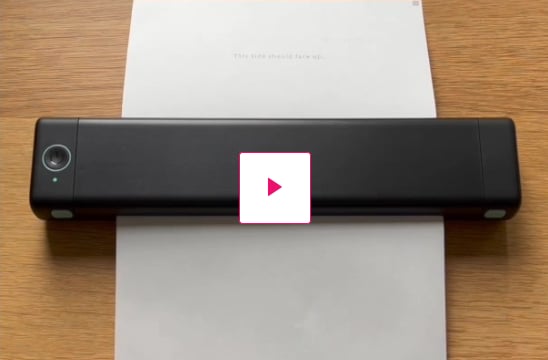Do You Have To Pay Taxes For Dropshipping in 2025?
Contents
-0a09c.jpg)
Yes, you do have to pay dropshipping taxes. It does seem a bit frustrating because dropshipping is itself a method to raise profits. But sadly, you have to pay income tax and pay sales tax on dropshipping, and it can prove to be a huge risk to your business if you don’t.
We know that taxes can sound scary for new dropshippers. So, we would like to offer our help. Let’s prepare you, so you know what your tax obligations are.
First, you have to learn some terms about dropshipping taxes. Let’s get you familiar with the terminology.
Key Takeaways
- You’re required to pay income tax on your profits
- In most countries, you are also required to collect and remit sales tax
- You pay the sales tax based on your nexus, i.e., the country you are in
- Shopify can streamline the tax calculation process
- You can learn about tax exemption tactics at the Sell The Trend Success Academy


Terminology You Need to Know
Sales Tax Nexus: Sales tax nexus refers to the connection between your business and a state that requires you to collect sales tax.
Tax Exemption Certificate: This certificate allows dropshippers to purchase inventory without paying sales tax upfront, provided the goods are resold to customers. This helps prevent double taxation.
Consumption Tax: This is a tax imposed on goods and services at the point of purchase. In the United States, sales tax is a common form of consumption tax collected at the state or local level.
Tax Liability: Your liability is the total amount of taxes you owe, including income taxes, sales taxes, and other applicable levies. It’s crucial to calculate your liability accurately to avoid penalties.
Dropshipping taxes can get technical, but you will get used to it. Now, to stay compliant with legal requirements, you need to pay sales tax and pay income tax.
Pay Sales Tax: How it Works

When running a dropshipping business, one of the biggest questions is how to pay sales tax. Simply put, sales tax is a consumption rate that customers pay when purchasing goods or services, which businesses must collect and remit to their state or local governments. Different states have different sales tax rates.
The concept of sales tax nexus is essential here. If your business has a physical or economic presence in a state, you are required to collect sales tax from customers in that state. However, many states now impose sales tax collection requirements even on businesses without a physical presence, making compliance more of a hassle.
Traditionally, nexus was established through a physical presence, such as having an office, warehouse, or employees in a particular state. However, the rules surrounding it have changed multiple times, especially after the 2018 Wayfair vs. South Dakota Supreme Court decision.
Today, many states have adopted an economic nexus model. This means you may need to pay sales tax even if you don’t have a physical presence but exceed a specific sales or transaction threshold in that state. For example:
States like California and Texas now enforce economic nexus laws. In California, you need to pay only if your sales exceed $500,000 annually in the state. Similarly, Texas has a $500,000 sales threshold but requires compliance with additional local tax rules.
Some countries are banking on dropshipping taxes but some still lag behind. We recommend checking the laws in your territory before paying taxes. If not easily accessible, seek professional advice.
Sounds complicated? Sell The Trend has an efficient solution for your online business, the SellShop platform. Our platform can basically automate the entire process. You don’t have to calculate manually, the Auto Tax feature simplifies the process by automatically applying default tax values once the user inputs their state registration code. So, if you are willing to learn about taxes but still want a platform to streamline the actual work, check out the SellShop platform.
Pay Income Tax: How it Works

In addition to sales tax, every dropshipper is required to pay income taxes on their profits. Your profits are considered taxable income and must be reported to both federal and state tax authorities.
The US government collects federal income tax, while individual states have their own rules for income taxes. The income tax rate may range from minimal to substantial. Dropshippers situated elsewhere only pay a federal income tax or nothing at all.
Many dropshippers attempt to lower their tax liability by claiming losses or deducting business expenses. However, it’s crucial to do this accurately to avoid complications during an audit. Filing income tax payments regularly helps you stay compliant and avoid penalties.
For new dropshippers, understanding how to calculate and file pay income tax can feel overwhelming. Consulting a tax professional or using accounting software tailored for e-commerce can streamline the process, ensuring your business adheres to all applicable tax laws.
Bad Habits to Avoid in Dropshipping Taxes

If you are a dropshipping business owner that doesn’t like going to a pro, you should have a routine for the entire process. Here are some habits that can lead to penalties.
Not Separating Personal and Business Finances
Many dropshippers fail to separate their personal and business accounts, leading to confusion during tax filing. This can result in missed deductions or inaccurate reporting.
Ignoring Estimated Tax Payments
Dropshippers often forget to make quarterly estimated tax payments, resulting in penalties at the end of the year.
Failing to Track Deductible Expenses
Expenses like advertising, software subscriptions, and shipping costs are tax-deductible, but many business owners fail to keep detailed records.
Misclassifying Income
Dropshippers sometimes misclassify their income, leading to discrepancies in their tax returns.
Neglecting State Income Tax
While federal income taxes are straightforward, state requirements vary and can catch dropshippers off guard.
How Tax Management Platforms Make Things Easier

Managing taxes can be one of the most tedious aspects of running a dropshipping business, but platforms like SellShop and Shopify provide some tools that will help you when you need to pay. Going through the numbers manually can lead to errors. So, a platform that can provide detailed reports will save time and eliminate the need for manual calculations. An invaluable solution that helps busy business owners focus on scaling their operations instead of worrying about tax errors.
Sell The Trend’s SellShop: Easy Tax Management for Dropshippers

Before exploring platforms like Shopify, consider SellShop by Sell The Trend—an all-in-one solution tailored for dropshippers. SellShop’s features include flexible tax management options, Manual Tax, and Auto Tax settings. Our platform allows you to input specific tax rates or automatically apply default values based on your state registration code. SellShop will make the process of setting up point-and-click. An excellent choice for entrepreneurs seeking efficiency and simplicity.
Shopify
Shopify has its own sales tax compliance solutions that ensure accurate tax collection and reporting for every transaction. It’s also able to automatically collect tax. Once configured, the platform calculates and collects sales tax based on the customer’s location and your business’s tax settings. Shopify’s built-in tools also provide detailed reports.
Here’s how to set up your tax obligations on Shopify.
Setting Up Sales Tax Collection in Shopify
Follow these steps to automatically collect tax.
1. Access Tax Settings

- Log in to your Shopify admin panel.
- Navigate to Settings > Taxes and Duties.
2. Enable Automatic Tax Collection
- In the Taxes and Duties section, select the regions where you need to collect sales tax.
- Shopify provides the option to enable automatic tax calculation based on the customer’s location.
3. Add Tax Registrations

- For each state where you have nexus, add your tax registration details (e.g., tax ID numbers).
- Shopify uses this information to calculate the correct sales tax rate automatically.
4. Customize Tax Rules
-
-
- Adjust tax settings for specific products if they qualify for exemptions or special tax rates.
- For example, some items may not be subject to consumption in certain states.
-
5. Activate Tax Overrides (if needed)
-
-
- If your state has unique tax rules, set up overrides to ensure compliance with local regulations.
-
6. Test Your Settings
-
-
- Perform a test transaction to ensure Shopify calculates sales taxes correctly for your customers’ locations.
-
7. Generate Tax Reports
-
- Shopify provides detailed tax reports that help you track and remit sales tax accurately. These reports can be downloaded for easy filing.
- Shopify provides detailed tax reports that help you track and remit sales tax accurately. These reports can be downloaded for easy filing.

Do You Need to Hire a Professional?
For some, paying both a sales tax and an income tax can be overwhelming. So, hiring a professional is a wise investment.
A knowledgeable pro can help you understand and comply with applicable tax requirements. They can even provide some insights that will significantly reduce how much tax you pay.
Tax professionals can assist with filing both income taxes and sales taxes, identifying deductions, and optimizing your overall tax strategy.
They can also advise on specific requirements, such as obtaining an official exemption certificate or calculating eligibility for a tax credit.
Tax Exemptions and Certificates for Dropshipping Businesses

Tax exemptions can save dropshippers significant amounts. Here are some things we think you should know.
What is a Sales Tax Exemption Certificate?
This certificate allows businesses to purchase goods from suppliers without paying sales tax upfront, provided the goods will be resold. It helps avoid double taxation in the supply chain.
Who Qualifies for a Tax Exemption?
Dropshippers qualify if: You’re purchasing inventory exclusively for resale(with a resale certificate). You’re registered to collect sales tax in your state or other states where you sell.
How to Obtain the Certificate?
- Step 1: Register your online business with your state’s tax authority to receive a tax ID.
- Step 2: Complete the application (available online in most states).
- Step 3: Provide your supplier with the certificate when making purchases.
When to Use Exemption Certificates?
Always present your certificate when buying inventory for resale. If selling to tax-exempt organizations or customers in states without sales taxes, you may also qualify for exemptions.
Obtaining and using the certificate properly ensures compliance with tax laws and reduces your overall tax liability.
FAQs
Do you have to pay taxes for dropshipping?
Yes, you do. Dropshipping requires paying taxes on income and, in most cases, collecting and remitting sales tax, depending on the state’s regulations.
Do I need an LLC to be a dropshipper?
No, you don’t necessarily need an LLC to be a dropshipper. However, having an LLC can provide legal protections and simplify your tax obligations.
Should I charge tax on Shopify dropshipping?
Yes, you should charge sales tax on Shopify dropshipping if your state or jurisdiction requires it. Shopify has built-in tools to help your dropshipping business stay compliant.
Do I need a tax ID for dropshipping?
Yes, most states require you to have a tax ID if you’re collecting sales tax or filing income tax for your dropshipping business.
What permits do you need for dropshipping?
The specific permits vary by state, but you generally need a seller’s permit or exemption certificate for your sales tax to collect and remit legally.
Can I sell on Shopify without a tax ID?
Technically, you can start selling without a tax ID, but you will need one to collect sales tax and comply with legal requirements as your business grows.
Conclusion
We want to help dropshippers that are new to the industry. Now that you have a better idea of how dropshipping taxes work, are you up for it? If you feel confident, you should try doing it yourself. You are already familiar with the terminology, and with the help of Shopify and Sell The Trend, you should be able to figure it out.
Want to pay less? Stay up to date with recent laws, and learn about new trends that dropshippers are using to reduce a charge sales tax. By staying proactive and using the resources available to you, taxes are not an obstacle. Instead, it can become a huge part of your business strategy.
Dropshipping taxes can significantly lower your profits. We recommend making sure that everything is handled well. If you don’t want to be bothered, just hire a service that is known for getting sales tax exemption certificates. We hope we helped you; at least you won’t look lost when talking to a professional.







